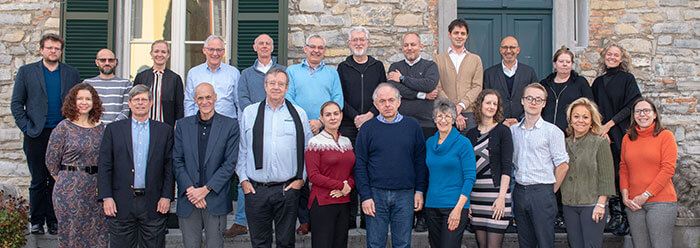
Leadership
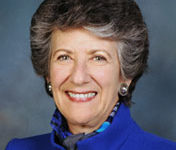
Susan Ness, co-chair and project director, is a distinguished fellow of the Annenberg Public Policy Center and a former member of the U.S. Federal Communications Commission. She also is a distinguished fellow at the German Marshall Fund of the United States. Previously, Ness was a senior fellow with the SAIS Center for Transatlantic Relations of the Johns Hopkins School of Advanced International Studies. She heads Susan Ness Strategies, a communications policy consulting firm, and is a member of the board of directors of TEGNA, a broadcast and digital media company (TGNA-NYSE). She also serves on the board of Vital Voices Global Partnership, an NGO that identifies emerging women leaders around the world and assists them to achieve their mission.
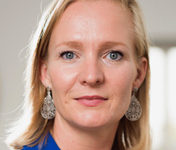
Marietje Schaake, co-chair, is international policy director at the Stanford University Cyber Policy Center and international policy fellow at Stanford’s Institute for Human-Centered Artificial Intelligence. She is the president of the CyberPeace Institute. Between 2009 and 2019, Schaake served as a member of European Parliament for the Dutch liberal democratic party, where she focused on trade, foreign affairs, and technology policies. Schaake is affiliated with a number of nonprofits, including the European Council on Foreign Relations and the Observer Research Foundation in India and writes a monthly column for the Financial Times and a biweekly column for the Dutch NRC newspaper.
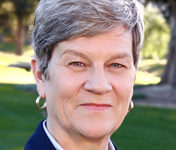
Kathleen Hall Jamieson, director of the Annenberg Public Policy Center, is the Elizabeth Ware Packard Professor of Communication at the University of Pennsylvania’s Annenberg School for Communication and program director of The Annenberg Retreat at Sunnylands. Jamieson has authored or co-authored 16 books, including the award-winning 2018 book Cyberwar: How Russian Hackers and Trolls Helped Elect a President. Her work has been funded by the FDA and the MacArthur, Ford, Carnegie, Pew, Robert Wood Johnson, Packard, and Annenberg Foundations. She is a co-founder of FactCheck.org and its subsidiary site, SciCheck, and director of The Sunnylands Constitution Project, which has produced more than 30 films on the Constitution for high school students. Jamieson is a fellow of the American Academy of Arts and Sciences, the American Philosophical Society, the American Academy of Political and Social Science, and the International Communication Association, and a past president of the American Academy of Political and Social Science.
Members
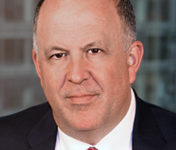
Michael Abramowitz is president of Freedom House. Before joining Freedom House in February 2017, he was director of the U.S. Holocaust Memorial Museum’s Levine Institute for Holocaust Education. He led the museum’s genocide prevention efforts and later oversaw its public education programs. Abramowitz was previously National Editor and then White House correspondent for the Washington Post. He is a member of the Council on Foreign Relations and former fellow at the German Marshall Fund and the Hoover Institution. A graduate of Harvard College, he is also a board member of the National Security Archive, and a member of the Human Freedom Advisory Council for the George W. Bush Presidential Center.

Barbora Bukovská (Steering Committee) has been ARTICLE 19’s senior director for law and policy since 2009. She heads the development of all ARTICLE 19 policies and provides legal oversight and support across the organization. Bukovská has extensive experience working with organizations on human rights issues, including protection from discrimination, access to justice, deprivation of liberty, reproductive rights, and community development. She also initiated 50 cases at the European Court of Human Rights on these issues and has published many reports and articles on human rights. From 2006 to 2008, she was the legal director at the Mental Disability Advocacy Centre, an international organization working on the rights of people with disabilities in Europe and Central Asia. Bukovská graduated from the Law School of Charles University in Prague and earned a doctorate in law in Slovakia and an LLM from Harvard Law School. From 1998 to 1999, she was a visiting scholar at the Columbia University Law School in New York.
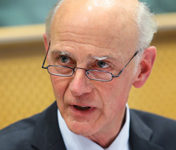
Peter Chase (Steering Committee) is a senior fellow in the Brussels office of the German Marshall Fund. He focuses on the transatlantic economy, with emphasis on digital and energy policies, trade and investment, and the EU’s economic relations with third countries. Previously, Chase was vice president for Europe for the U.S. Chamber of Commerce, following his 30-year career with the U.S. Department of State, where his last post was as minister-counselor for economic affairs with the U.S. Mission to the European Union. Chase, who grew up in Taiwan, received his bachelor of arts in Chinese language and literature from the University of Washington in Seattle in 1976 and his master of international affairs from Columbia University in 1978.
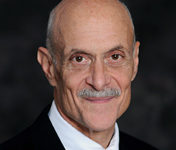
Michael Chertoff (Steering Committee) is the executive chairman and co-founder of The Chertoff Group, a global advisory services firm that applies security expertise, technology insights, and policy intelligence to help clients build resilient organizations, gain competitive advantage, and accelerate growth. In this role, he counsels global clients on how to effectively manage cyber risk while incorporating a proper mix of people, process, and technology to achieve their security goals. From 2005 to 2009, Chertoff served as Secretary of the U.S. Department of Homeland Security. Earlier in his career, Chertoff served as a federal judge on the U.S. Court of Appeals for the Third Circuit and head of the U.S. Department of Justice’s Criminal Division. He is the author of the recently published book Exploding Data: Reclaiming Our Cybersecurity in the Digital Age.
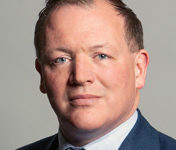
Damian Collins has served as the Conservative MP for Folkestone and Hythe since 2010. He was elected by the House of Commons as chairman of the Digital, Culture, Media and Sport Select Committee from October 2016 through 2019, having previously served as a member of the committee. In this role he led the committee’s inquiries into doping in sport, fake news, football governance, homophobia in sport, and the impact of Brexit on the creative industries and tourism. Collins is also the chairman of the Conservative Arts and Creative Industries Network. During the Coalition government Collins served as Parliamentary Private Secretary (PPS) to the then Foreign Secretary, Philip Hammond. From 2012 to 2014 he was PPS to the then Secretary of State for Northern Ireland, Theresa Villiers.

Harlem Désir was appointed as the OSCE Representative on Freedom of the Media in July 2017. Prior to this position, Désir was French Minister of State for European Affairs, attached to the French Minister of Foreign Affairs and International Development, since April 2014. He was a member of the European Parliament for three consecutive terms from 1999 to 2014. Désir was a member of the Committee on Industry, Energy and Research, the Employment and Social Affairs, and the Committee on Development. He was also vice president of the delegation for relations with the United States (2002-2004), a member of the Joint ACP-EU Parliamentary Assembly (2002-2009), and a member of the delegation for relations with India (2009-2014). Désir holds a bachelor’s degree in philosophy from the Paris I Sorbonne University. He has been awarded the Olof Palme Prize, the Grand Cross of the Order of the Phoenix, and the Knight Commander’s Cross of the Order of Merit of the Federal Republic of Germany.
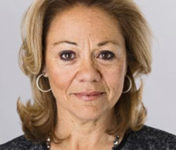
Eileen Donahoe is executive director of the Global Digital Policy Incubator at Stanford University. Donahoe served as U.S. Ambassador to the United Nations Human Rights Council in Geneva during the Obama administration. After leaving government she was director of global affairs at Human Rights Watch, where she represented the organization worldwide on human rights foreign policy. She serves on the National Endowment for Democracy Board of Directors; Dartmouth College Board of Trustees; University of Essex Human Rights, Big Data and Technology Advisory Board; Benetech Human Rights Advisory Board; and Freedom Online Coalition Advisory Network. Earlier in her career she was a technology litigator at Fenwick & West in Silicon Valley. She holds a BA from Dartmouth; MTS from Harvard; a joint JD/MA (East Asian Studies) from Stanford; and PhD in Ethics and Social Theory from the GTU Cooperative Program with UC Berkeley. She is a member of the Council on Foreign Relations.

Michal Feix is senior advisor to the Board of Directors of Seznam.cz, the largest online platform in the Czech Republic. In 2004 he joined Seznam.cz, a start-up company with about 50 employees, having previously worked at the Czech online platforms Atlas.cz and Centrum.cz. He has been chief operations officer and chief legal officer at Seznam.cz, overseeing all its legal activities and building its public policy team in the Czech Republic and Brussels. Since 2012, as chief operating officer, CEO and member of the Board of Directors, Feix has overseen all activities of Seznam.cz, which now has 1,200 employees and yearly turnover above €200 million. Feix is currently a partner and CEO of Chronos Consulting, exclusively advising Seznam.cz on M&A and is leading public policy activities on the national and EU level. He holds a master of science in informatics and computer sciences. From 2012-2014, Feix also served as IT advisor to the Minister of Industry and Trade in Czech Republic on regulatory issues in digital industries.

Camille François (Steering Committee) works on cyber conflict and digital rights online. She is chief innovation officer at Graphika, where she leads its work to detect and mitigate disinformation, media manipulation, and harassment. François was previously principal researcher at Jigsaw, an innovation unit at Google that builds technology to address global security challenges and protect vulnerable users. She has advised governments and parliamentary committees on both sides of the Atlantic on policy issues related to cybersecurity and digital rights. She served as a special advisor to the Chief Technology Officer of France in the Prime Minister’s office, working on France’s first Open Government roadmap. François is a Mozilla Fellow, a Berkman Klein Center affiliate, and a Fulbright scholar. She holds a master’s degree in human rights from the French Institute of Political Sciences (Sciences-Po) and a master’s degree in international security from the School of International and Public Affairs (SIPA) at Columbia University. Her work has been featured in various publications, including the New York Times, WIRED, Washington Post, Bloomberg Businessweek, Globo, and Le Monde.

John Frank became Microsoft’s vice president of United Nations Affairs in March 2020, focused on deepening Microsoft’s engagements on environment, skills training, human rights, and security. Previously he was vice president, EU Affairs, based in Brussels, and vice president, deputy general counsel, and chief of staff for Microsoft president and chief legal officer Brad Smith at Microsoft’s headquarters in Redmond, Washington. Frank joined Microsoft based in Paris, overseeing the legal and regulatory issues in launching the Microsoft Network (MSN) in Europe. From 1996 to 2002, he led Microsoft’s Legal and Corporate Affairs group for Europe, Middle East, and Africa, focusing on privacy, security, consumer protection, and antitrust matters. Before Microsoft, he practiced law in San Francisco with Skadden, Arps, Slate, Meagher & Flom. Frank received an AB degree from Princeton’s Woodrow Wilson School and a JD from Columbia Law School.

Brittan Heller (Steering Committee) works at the intersection of technology, human rights, and the law, and is an expert on hate speech and the movement from online conduct to offline violence. Heller, who is counsel, Corporate Social Responsibility, at Foley Hoag LLP, founded the Center for Digital Civil Rights and is a Tech and Human Rights Fellow at the Harvard Kennedy School. She is also a senior associate at the CSIS Business and Human Rights Initiative, where she advises tech companies, governments, and international organizations on integrating public safety and freedom of expression. Previously, Heller founded ADL’s Center for Technology and Society in Silicon Valley. She investigated and prosecuted genocide and war crimes at the U.S. Department of Justice, established the law school at the American University in Kabul, Afghanistan, worked with North Korean refugees in Seoul, South Korea, and practiced international law at the International Criminal Court and the International Criminal Tribunal for Rwanda. Heller is a term member of the Council on Foreign Relations, a Luce Scholar, and a Jeopardy! champion. She graduated from Yale Law School and Stanford University.
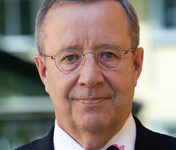
Toomas Hendrik Ilves, former president of Estonia (2006-2016), is a Berggruen Fellow at the Center for Advanced Study in the Behavioral Sciences, and distinguished visiting fellow at the Hoover Institution and the Global Digital Policy Incubator, Stanford University. Before assuming the office of the presidency, Ilves was vice president of the Foreign Affairs Committee of the European Parliament (2004-2006) and foreign minister of Estonia (1996-2002), where he led Estonia’s EU and NATO accession process. From 1993-96 he served as Estonia’s first post-independence ambassador to Washington. He is best-known internationally for his work from 1995-2016 pushing Estonia to digitize its government. From 2014 to 2015, Ilves co-chaired the advisory panel for the World Bank’s World Development Report 2016 “Digital Dividends,” and in 2014 chaired the World Economic Forum’s Global Agenda Council on Cyber Security. Since 2016, he has co-chaired the WEF working group on blockchain. In 2017, he joined the advisory council of the GMF Alliance for Securing Democracy, and in 2018, the advisory board of the Oxford University Centre for Technology and Global Affairs.
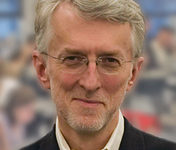
Jeff Jarvis is professor and director of the Tow-Knight Center for Entrepreneurial Journalism in the Craig Newmark Graduate School of Journalism at the City University of New York. There he created new degrees and programs in Entrepreneurial Journalism, Social Journalism, and News Innovation and Leadership. Jarvis is the author of Geeks Bearing Gifts, Public Parts, What Would Google Do? and Gutenberg the Geek and is cohost of the podcast “This Week in Google.” He blogs at buzzmachine.com. Previously, he was president and creative director of Advance.net, the online arm of Advance Publications (including Condé Nast and Newhouse Newspapers); creator and founding editor of Entertainment Weekly; Sunday editor and associate publisher of the New York Daily News; TV critic of TV Guide and People magazines; a columnist for the San Francisco Examiner; and an editor for the Chicago Tribune.

David Kaye is a professor of law at the University of California, Irvine, and the United Nations Special Rapporteur on the promotion and protection of the right to freedom of opinion and expression. Appointed by the U.N. Human Rights Council in June 2014, he is the global body’s principal monitor for freedom of expression issues worldwide. His thematic reporting has addressed, among other things, growing repression of freedom of expression globally, encryption and anonymity, the protection of whistleblowers and journalistic sources, the roles and responsibilities of private Internet companies, the regulation of online content by social media and search companies, and the ways in which artificial intelligence technologies implicate human rights issues. Kaye began his legal career with the U.S. State Department’s Office of the Legal Adviser and is a member of the Council on Foreign Relations and former member of the Executive Council of the American Society of International Law.

Emma Llansó is the director of the Center for Democracy & Technology’s Free Expression Project, which works to promote law and policy that support internet users’ free expression rights in the United States and around the world. Llansó leads CDT’s legislative advocacy and amicus activity around freedom of expression in the U.S. and the EU, which focuses on protecting fundamental rights and preserving strong intermediary liability protections. She also works to develop content policy best practices with internet content platforms and advocates for user-empowerment tools and other alternatives to government regulation of online speech. This includes advocacy for increased transparency from tech companies and governments about co-regulatory and voluntary collaborative initiatives and improved transparency, appeals, and remedy procedures from ICT companies as they enforce their own content policies. Llansó has served on the board of the Global Network Initiative and is a member of the Freedom Online Coalition Advisory Network. Emma joined CDT in 2009. She earned a BA in anthropology from the University of Delaware and a JD from Yale Law School.

Benoît Loutrel is a French civil servant who specialized in digital regulation. In 2019, he led the experiment embedding regulators in Facebook to examine efforts to fight hate speech online. Trained as an engineer at École Polytechnique and as an industrial economist at the Toulouse School of Economics, he worked for eight years at the World Bank Group (1996-2004) in infrastructure financing. He joined ARCEP, the French telecommunication and postal regulator, as director of fixed and mobile regulation (2004-2010) and then as director general (2013-2017). He worked for the French Commissioner General for Investment from 2010 to 2013 to set up a €4.5 billion digital investment program. In 2017, Loutrel worked (briefly!) for Google as public policy director for France. Since 2018, he has performed advisory assignments for the French ministry of economy, including designing a fit-for-purpose regulatory framework for social networks.
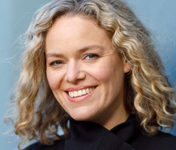
Katherine Maher is executive director of the Wikimedia Foundation. She has spent her career at the intersection of technology, human rights, democracy, and international development. Before joining the foundation, she was advocacy director for the international digital rights organization Access in Washington, D.C., where she worked on global policy issues related to freedom of expression, access to information, and privacy. Prior to Access, Maher was an information and communications technology (ICT) innovations specialist at the World Bank; ICT program officer at the National Democratic Institute; and innovation and communication officer at UNICEF. She joined the Wikimedia Foundation in 2014 as the organization’s first chief communications officer. Maher received her bachelor’s degree in Middle Eastern and Islamic studies in 2005 from New York University’s College of Arts and Science, after studying at the Arabic Language Institute of the American University in Cairo, Egypt, and Institut français d’études arabes de Damas (IFEAD) in Damascus, Syria.
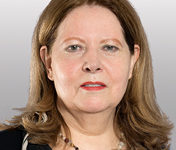
Erika Mann is a senior European policy advisor in Covington & Burling’s Public Policy Practice Group. A former member of the European Parliament, she has over 25 years of experience in policy related matters. She is a current GNSO Council member of the Internet Corporation for Assigned Names and Numbers (ICANN) and former ICANN board member. Mann was a German member of the European Parliament (MEP) between 1994 and 2009, where she focused on trade policy, transatlantic relations, research policy, digital economy, telecommunications, and Internet-related legislation. She chaired the official European Parliament-Mexico delegation from 2004 to 2009. Before joining Covington, Mann was executive director of the Brussels Facebook office, and, before that, she was EVP and head of the European office of CCIA. Until 2009, she and Senator Bob Bennett of Utah jointly chaired the Transatlantic Policy Network European (TPN). She has been awarded the Merit Cross of the Federal Republic of Germany.

Peter Pomerantsev (Steering Committee) is a senior fellow at the Institute of Global Affairs at the London School of Economics and at the Agora Institute at Johns Hopkins University, where he is co-director of the Arena Initiative. A contributing editor at The American Interest, he has testified on the challenges of information war before the U.S. House Foreign Affairs Committee, U.S. Senate Foreign Relations Committee and the UK Parliament Defense Select Committee. His latest book, This Is Not Propaganda: Adventures in the War Against Reality, was published in 2019. His 2016 book on Russian propaganda, Nothing is True and Everything is Possible, won the 2016 Royal Society of Literature Ondaatje Prize, and was nominated for the Samuel Johnson, Guardian First Book, Pushkin House, and Gordon Burns Prizes. It is translated into over a dozen languages.

Laura Rosenberger is the director of the Alliance for Securing Democracy and a senior fellow at the German Marshall Fund of the United States (GMF). Before she joined GMF, she was foreign policy advisor for Hillary for America, where she coordinated development of the campaign’s national security policies, messaging, and strategy. Prior to that, Rosenberger served in a range of positions at the State Department and the White House’s National Security Council (NSC). As chief of staff to Deputy Secretary of State Tony Blinken and later as then Deputy National Security Advisor Blinken’s senior advisor, she counseled on the full range of national security policy. In her role at the NSC, she also managed the interagency Deputies Committee. She served as NSC director for China and Korea, managing and coordinating U.S. policy on China and the Korean Peninsula, and in a variety of positions focused on the Asia-Pacific region at the Department of State, including managing U.S.-China relations and addressing North Korea’s nuclear programs.
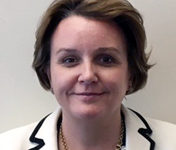
Abigail Slater is former special assistant to the president for technology, telecom, and cyber policy at the White House National Economic Council, in which capacity she participated in the TWG. She currently is senior vice president, policy and strategy, Fox Corp. Prior to these roles, she was general counsel at the Internet Association, where she oversaw legal and regulatory matters on behalf of the association’s 40 members. She spent 10 years at the United States Federal Trade Commission as an antitrust staff attorney and later as advisor to Commissioner Julie Brill. Slater began her legal career at Freshfields in London and holds law degrees from University College Dublin and Oxford University.

Derek Slater serves as global director of information policy on Google’s government affairs and public policy team. In this role, he advises the company on appropriate public policy frameworks for online content — including intellectual property, terrorism, misinformation, and child safety. Throughout his more than a decade at Google, Derek has also led work related to the future of work, economic opportunity, broadband access, and consumer rights. Prior to his role at Google, he worked on internet policy at the Electronic Frontier Foundation and the Berkman Klein Center for Internet and Society at Harvard University.

Heidi Tworek (Steering Committee) is associate professor of public policy and history at the University of British Columbia, Vancouver. She is a non-resident fellow at the German Marshall Fund of the United States and the Canadian Global Affairs Institute. She is a term member of the Council on Foreign Relations. Her latest book – News from Germany: The Competition to Control World Communications, 1900-1945 (Harvard University Press, 2019) – received awards from the Wiener Holocaust Library and the Business History Conference. Alongside co-editing two books, Tworek has published widely in academic and journalistic venues in English and German, and has appeared on national radio and television in the United States, Canada, the United Kingdom, and Germany. She has briefed or advised officials and policymakers from multiple European and North American governments on media, cybersecurity, disinformation, democracy, and the digital economy. She is currently working on health communications.

Joris van Hoboken (Steering Committee) is an associate professor at the Institute for Information Law and a professor of law at the Interdisciplinary Research Group on Law, Science, Technology & Society, Vrije Universiteit Brussels. He works on the intersection of fundamental rights protection (data privacy, freedom of expression, non-discrimination) and the governance of platforms and internet-based services. He is a specialist in European data protection, algorithmic governance and the regulation of platforms and internet intermediaries. Van Hoboken obtained his PhD from the University of Amsterdam on search engines and freedom of expression (2012), and has graduate degrees in law (2006, University of Amsterdam, cum laude) and theoretical mathematics (2002, University of Amsterdam, cum laude). He regularly speaks at international conferences and has conducted research for the European Commission, the Dutch Government, ENISA, UNESCO, and the Open Society Foundations.
Transatlantic Working Group Senior Advisor

Mark MacCarthy is on the faculty at Georgetown University, where he teaches courses in technology policy in the communication, culture, and technology program and courses on privacy and AI ethics in the philosophy department. He is also a senior fellow at the Institute for Technology Law and Policy at Georgetown Law, a senior policy fellow at the Center for Business and Public Policy at Georgetown’s McDonough School of Business, and a senior fellow with the Future of Privacy Forum. Previously, he was senior vice president for public policy at the Software & Information Industry Association, where he directed initiatives and advised member companies on technology policy, privacy, AI ethics, content moderation, and competition policy in tech. MacCarthy regularly speaks and writes on topics of technology policy and ethics. He has served as a consultant on technology policy issues for the Organization for Economic Cooperation and Development and for the Aspen Institute. MacCarthy holds a PhD in philosophy from Indiana University and an MA in economics from the University of Notre Dame.
Transatlantic Working Group Researcher

Paddy Leerssen is a PhD candidate at the Institute for Information Law (IViR). His PhD research focuses on Europe’s regulation of transparency in platform gatekeeping algorithms. His other research interests are intermediary liability and net neutrality law. Leerssen also is a non-resident fellow at Stanford University’s Center for Internet and Society. He earned an LLM from Harvard Law School in media and telecommunications law, where he studied as a Fulbright Scholar. He also holds a bachelor’s degree from Maastricht University in European and Dutch law, and a master’s from the University of Amsterdam in information law.